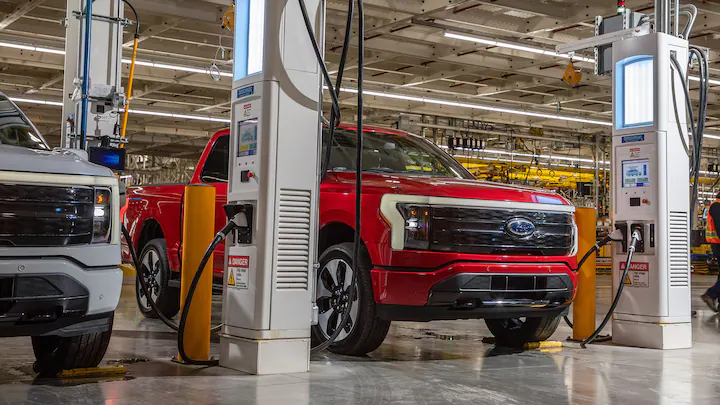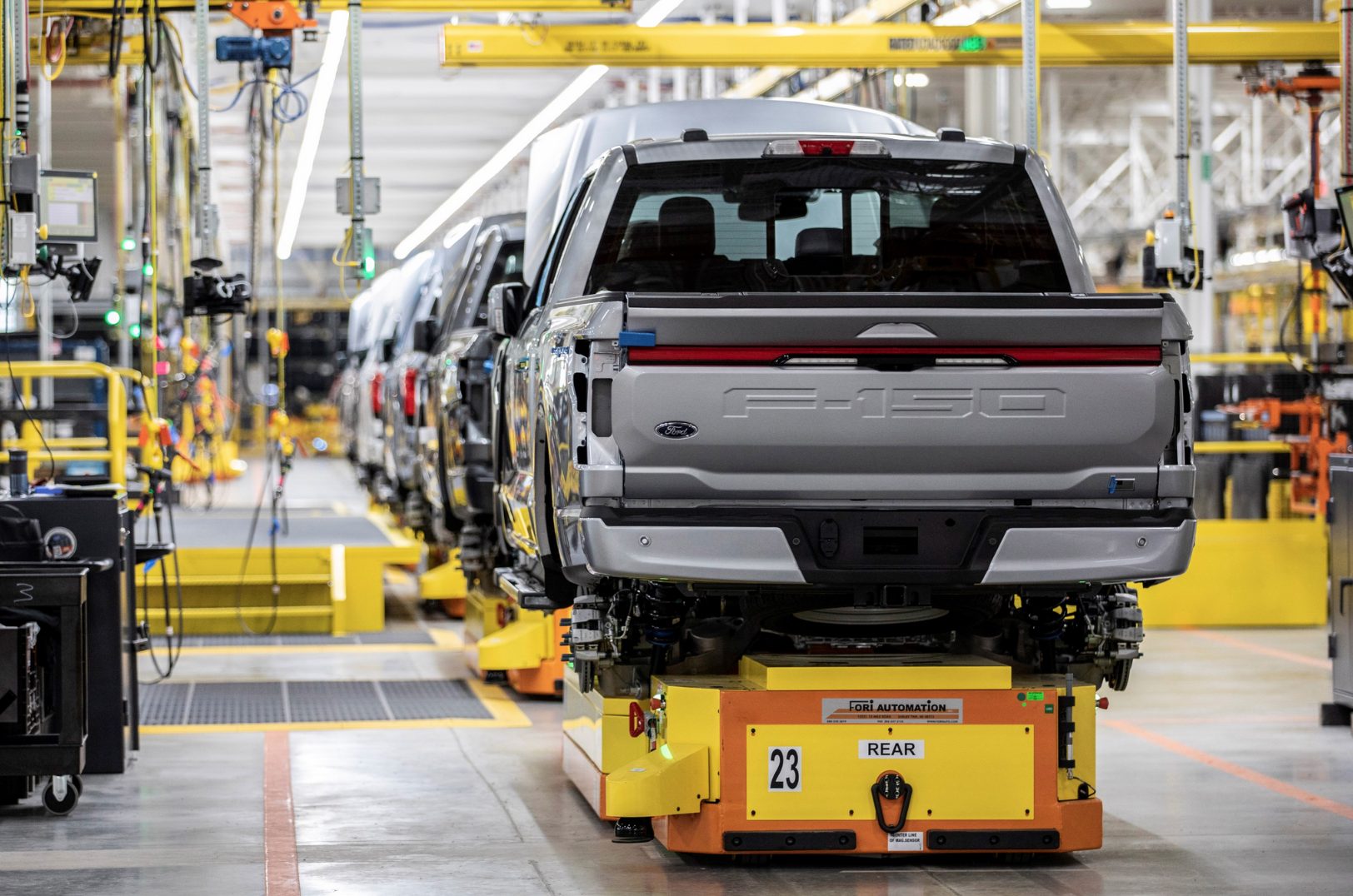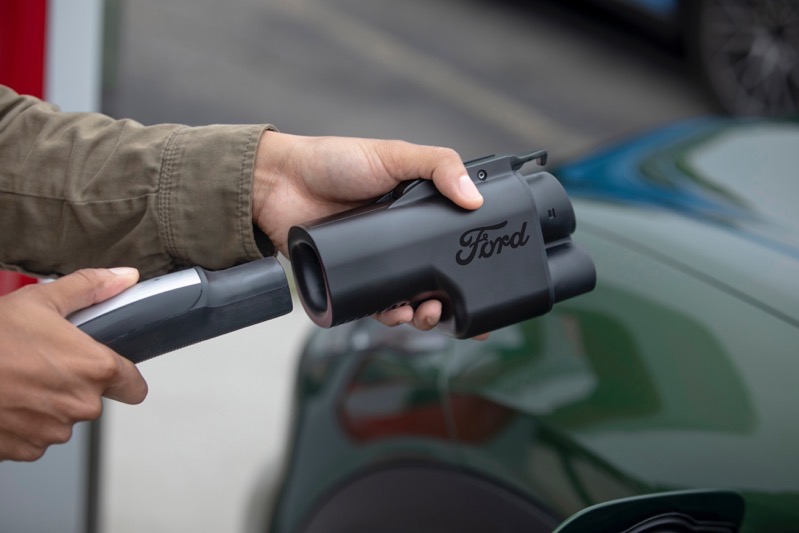Ford Unveils Plans for New 3-Row Electric SUV and Pickup Truck

Photo: F-150 Lightning
Ford CEO Jim Farley has revealed exciting details about the company’s electric vehicle (EV) initiatives during a Capital Markets day for investors. The highlight of the presentation was the unveiling of a new battery-electric three-row SUV set to launch in 2025. This vehicle will be the people-hauler sibling of the successor to the F-150 Lightning, both of which will be built on a brand new EV platform called TE1.
Farley described the upcoming SUV as “a personal bullet train” due to its impressive ability to travel at least 300 miles at 70 miles per hour on the highway, reports Autoblog. Doug Field, Ford’s EV and software expert, added that the SUV is expected to cover 350 miles on a single charge in combined driving conditions and regain 150 miles of range in just 10 minutes at a DC fast charger.
Field revealed that Ford has been working on this project for a couple of years, aligning with his arrival at the company. Recognizing the challenges of EV commoditization, price wars, fierce competition in the two-row SUV segment, and emerging competitors from China, Farley stated, “We saw it coming like a freight train.” He emphasized the need for a unique strategy, focusing on trucks and large SUVs, which are Ford’s strengths and where price is less of a concern.
The upcoming pickup truck, referred to as “the Millennium Falcon with a back porch,” along with the “bullet train” SUV, form the core of Ford’s second-generation electric vehicles. These vehicles are designed without the constraints of internal combustion engine (ICE) vehicles.
While the new EV SUV is compared to the current Expedition in terms of interior space, it is expected to have a unique design that is “longer, sleeker, quieter,” with a lower ride height. The exact look of the vehicle remains a mystery, with only a slide showing six occupants in three rows atop a slim pack presented to investors.

The gas-engined Expedition will continue to be available for buyers who need to haul and tow lots of gear over long distances. Field noted that converting an Expedition into an EV would not have resulted in a satisfactory product.
Instead, the future electric SUV is predicted to achieve its range figures from a 100-kWh battery, which is significantly smaller than the 140-kWh pack a converted Expedition would need. This smaller battery will weigh less, cost less, and allow Ford to serve more customers with the same amount of scarce battery raw materials.


I don’t know how much demand there will be for larger SUVs but if it is great enough, maybe Ford will be able to carve out a niche here. Tesla seems intent on addressing a more compact/economical segment with their 3rd Gen. platform so they shouldn’t be much competition.